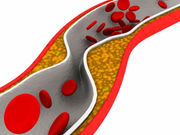Tag: Proton Pump Inhibitors
Proton Pump Inhibitor Use Tied to Hip Fracture in Dialysis Patients
Correlation between PPI and hip fracture persisted for subgroups with low, medium, high PPI use
Long-Term PPI Use Linked to Pneumonia Risk in Older Adults
Rate of incident pneumonia increased in second year after initiating treatment with proton pump inhibitors
Antibiotics, Acid-Suppressive Meds Tied to Allergic Disease
Findings for subsequent allergic disease following infant exposure in the first six months of life
Guidelines Can Cut Nonindicated Acid-Suppressing Rx in Infants
Decrease in nonindicated prescription of PPIs/H2RAs in young infants from mean of 7.5 to zero per month
PPI-Gastric Cancer Link Remains After H. Pylori Eradication
Increased risk seen in H. pylori-infected subjects who received eradication therapy
PPI Use Linked to Increased Risk of Ischemic Stroke, MI
Risks of first-time stroke, myocardial infarction up especially for long-term users, at high doses
CYPC19*17 Allele May Influence Response to PPI Treatment
Kids with CYPC19*17 alleles without corresponding loss-of-function alleles have longer times with pH <4
Proton Pump Inhibitors Overused Worldwide
Wide variation in inappropriate use documented in the international literature, from 11 to 84 percent
Proton Pump Inhibitors Linked to Higher Mortality Risk
Researchers find association between prolonged use of certain meds and increased risk of early death
PPIs Not Found to Raise Risk of Alzheimer’s Disease
New research debunks other studies suggesting that PPIs cause mental decline














